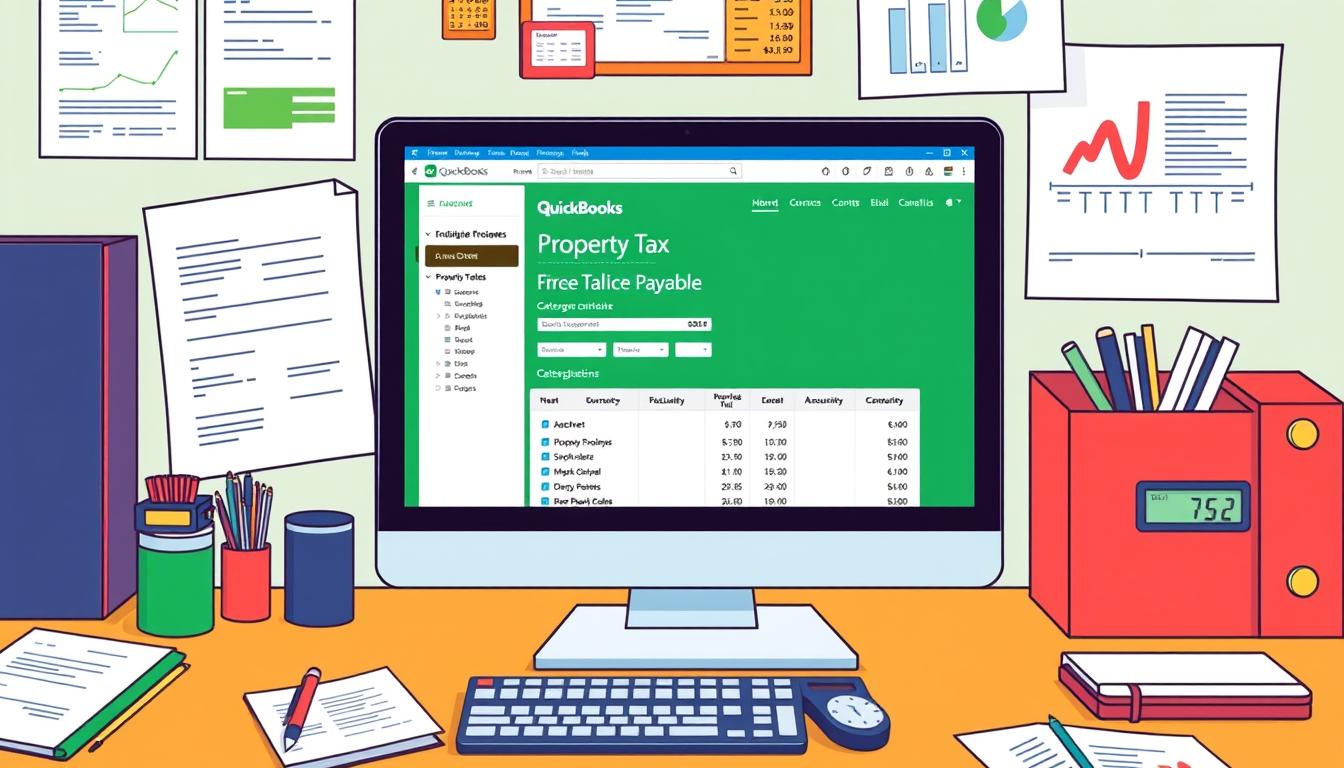
How to use quickbooks for a gas station
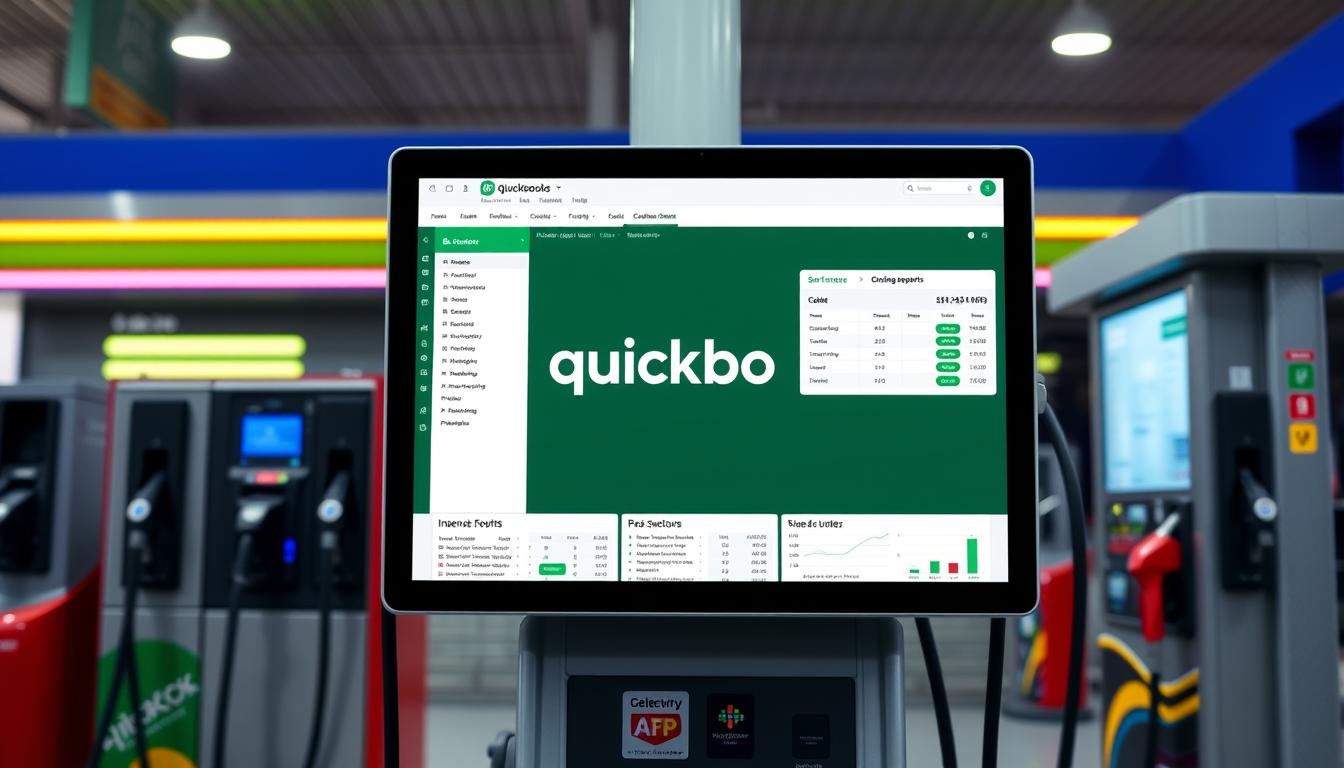
Table of Contents
Managing a gas station’s finances can be tough. QuickBooks for gas stations makes it easier. It helps with bookkeeping and financial management.
QuickBooks puts everything in one place. It makes tracking money in and out simple. This helps gas station owners make better choices.
This guide will show you how QuickBooks can help your gas station. It will make sure your business runs well and makes money.
Key Takeaways
- QuickBooks simplifies complex gas station bookkeeping tasks.
- Centralizes financial management for efficient decision-making.
- Enhances tracking of fuel and merchandise inventories.
- Facilitates streamlined invoicing and payment processes.
- Offers detailed financial reports to support business growth.
Introduction to QuickBooks for Gas Stations
QuickBooks is a key tool for gas stations. It offers a strong solution for this industry’s needs. This QuickBooks overview shows how it boosts daily operations and financial tasks.
As a gas station accounting software, QuickBooks makes accounting easier. It includes features like invoicing, payroll, and inventory tracking. These help gas station owners keep an eye on cash flow and employee payments.
The QuickBooks features make it easy to use for gas stations. It’s great for small to medium-sized businesses. Owners can quickly get to important financial info, helping them make better decisions.
In short, QuickBooks is essential for gas station management. It offers simplicity and functionality for various accounting needs.
Benefits of Using QuickBooks for Your Gas Station
QuickBooks brings many benefits to gas stations. It makes bookkeeping more accurate, reducing errors. This is key for keeping finances in check.
It also tracks all sales and expenses well. This is vital for good oversight.
QuickBooks saves a lot of time. It automates tasks like invoices and payroll. This lets owners focus on other important business areas.
It also boosts productivity and saves on labor costs.
QuickBooks offers top-notch financial reporting. It gives real-time insights into sales and expenses. This helps operators make smart decisions fast.
These decisions can really boost profits.
Real examples show QuickBooks’ power. Many gas stations have cut down on admin time. For example, one station now reports in minutes, not hours.
This efficiency means better customer service and more focus on operations.
In short, QuickBooks makes managing gas stations easier. It simplifies financial reports and boosts efficiency.
Setting Up QuickBooks for Your Gas Station
Setting up QuickBooks for your gas station is key. This guide covers the first steps, focusing on creating a company file and customizing your chart of accounts.
Creating Your Company File
The first step is to create your company file in QuickBooks. Start by opening QuickBooks and choosing to create a new company file. Enter your gas station’s name, address, and contact info. This ensures smooth operations later on.
To keep records organized, follow these steps:
- Pick the right industry type, like ‘Retail’ or ‘Gas Station’.
- Enter your financial details, like revenue and fiscal year.
- Choose a safe place for your file and make regular backups.
Customizing Your Chart of Accounts
Next, customize your chart of accounts. This step is vital for tracking transactions. Make sure your chart includes categories for gas station operations, like:
| Account Type | Example Accounts |
|---|---|
| Income | Fuel Sales, Merchandise Sales |
| Expenses | Overhead Expenses, Fuel Cost, Merchandise Purchases |
| Assets | Inventory, Cash on Hand |
| Liabilities | Loans, Accounts Payable |
Effective account categorization offers deep financial insights. Use QuickBooks’ templates for help. A well-organized chart of accounts aids in timely reporting and financial analysis.
Managing Inventory with QuickBooks
Keeping track of inventory management with QuickBooks is key for gas stations to stay profitable. QuickBooks has tools for fueling stations’ unique needs. This part talks about fuel tracking and managing merchandise.
Tracking Fuel Inventory
Fuel tracking can be tricky because of price changes and delivery times. QuickBooks has special features for gas stations. They help keep fuel levels up to date. Here are some ways:
- Integrating a barcode system to scan fuel deliveries and sales.
- Setting up alerts for low stock levels to prompt timely refills.
- Using reports to analyze fuel usage trends for better purchasing decisions.
Handling Merchandise Inventory
Good merchandise management boosts sales of items like snacks and tools. QuickBooks makes tracking these items easier. Here’s how:
- Creating categories for different types of merchandise for better organization.
- Implementing inventory counts to reconcile stock levels periodically.
- Utilizing sales reports to identify fast-moving items and adjust purchasing accordingly.
QuickBooks helps gas stations manage fuel and merchandise well. This leads to better business efficiency and quick responses to stock changes.
Streamlining Financial Management
For gas station owners, managing finances well is key to success. Using software like QuickBooks can change how you handle money. It helps with budgeting and tracking expenses, saving time and letting owners grow their business.
QuickBooks makes expense tracking easy by categorizing spending. This way, you can see where your money goes. It helps in making a better budget for gas stations, keeping expenses in line with goals.
QuickBooks also offers detailed reports. It shows cash flow, profits, and spending clearly. This info helps owners make smart financial choices, boosting profits and efficiency.
Adding QuickBooks to your financial work makes things more efficient. It’s a crucial tool for any gas station wanting to improve its financial management.
Creating Invoices and Accepting Payments
Invoicing with QuickBooks makes it easy for gas station owners to handle bills and track payments. It’s key to know how to make invoices and use different payment ways to boost cash flow. QuickBooks makes invoicing simple, helping business owners get paid on time.
Setting Up Payment Methods
Good payment processing is crucial for your gas station’s cash flow. QuickBooks offers many payment options for smooth transactions. Here are some common ones you can set up:
- Credit Card Processing: Use payment processors like Square or PayPal for quick credit card deals.
- ACH Transfers: Set up direct bank transfers for fast, secure payments without third-party services.
- Cash Payments: Record cash deals easily in QuickBooks to keep accurate records.
After setting up payment methods, QuickBooks tracks payments and reminds you about late invoices. This way, you manage your cash flow better. Here’s a table showing how each method affects efficiency:
| Payment Method | Advantages | Considerations |
|---|---|---|
| Credit Card Processing | Fast transactions, customer convenience | Processing fees may apply |
| ACH Transfers | No third-party fees, secure | May require setup time with banks |
| Cash Payments | Immediate availability, no fees | Requires careful manual tracking |
Generating Financial Reports with QuickBooks
QuickBooks reporting is key for gas station owners to grasp their business’s financial health. It offers insights into daily operations and aids in making strategic decisions. Reports like profit and loss statements, balance sheets, and cash flow statements are crucial. They give a full view of how well the business is doing financially.
The profit and loss statement tracks income and expenses over time. It helps in understanding profitability. A balance sheet shows assets, liabilities, and equity, giving a snapshot of the business’s financial state. Cash flow statements help see if the station can fund its needs and grow.
Regular use of these reports helps owners spot trends, control costs, and fix issues fast. QuickBooks advanced reporting lets owners find areas for growth. This boosts efficiency and profit.
| Type of Report | Key Features | Benefits |
|---|---|---|
| Profit and Loss Statement | Tracks income and expenses | Enables profitability analysis |
| Balance Sheet | Shows assets, liabilities, and equity | Provides a snapshot of financial position |
| Cash Flow Statement | Details cash inflows and outflows | Assists in managing cash effectively |
QuickBooks for Payroll Management in Gas Stations
Managing payroll well is key for gas stations to run smoothly and keep employees happy. QuickBooks makes payroll easy, from setting up employee info to figuring out taxes. This part talks about how QuickBooks helps with managing employees and handling payroll.
Setting Up Employee Profiles
QuickBooks helps create detailed profiles for employees. You can put in their contact info, tax details, and how much they get paid. This makes it easy to track who’s working, how many hours, and any overtime.
Having all this info in one place makes payroll easier. It helps keep everything organized and up to date.
Calculating Payroll Taxes
Getting payroll taxes right is important to follow the law. QuickBooks makes this easier by keeping tax rates current and letting you print out tax forms. This helps gas stations avoid mistakes and stay on top of their tax duties.
QuickBooks also makes paying employees easier with direct deposit. This helps with managing money better and keeps things running smoothly.
Integrating Point of Sale Systems with QuickBooks
Connecting POS systems with QuickBooks boosts sales tracking for gas stations. It lets businesses update their strategies with the latest data. This makes decision-making easier and more accurate.
This integration does more than just update data. It gives business owners deep insights into sales and customer habits. This helps gas stations manage their stock and staff better, based on real sales data.
Here are some compatible POS systems that work well with QuickBooks:
| POS System | Features | Benefits |
|---|---|---|
| Square | Mobile payments, analytics | Easy setup, robust reporting |
| ShopKeep | Inventory management, employee scheduling | Streamlined retail management |
| Clover | Customizable hardware, loyalty programs | Enhanced customer engagement |
Using these systems helps track sales accurately and manage retail better. This leads to a more efficient gas station operation.
Common QuickBooks Issues and Troubleshooting Tips
Gas station owners often face common issues with QuickBooks. These problems can include data entry errors and issues with Point of Sale (POS) systems. Knowing these common issues can help you manage your finances better.
Data entry mistakes are a big problem. They can make financial reports wrong, leading to bad decisions. To fix this, always check your entries for mistakes. Also, use the spell check feature in QuickBooks.
Connecting QuickBooks with your POS system can also be tough. This can slow down your work. Try restarting both devices to fix this. If it still doesn’t work, make sure both are updated.
Reports that don’t have the latest data can be very frustrating. This makes it hard to see your financial health. To solve this, check your report settings. Make sure they show the latest data and filters. Also, refreshing the report before you make it can help.
For more help, user support is key. QuickBooks has many resources like online forums, tutorials, and customer service. Using these can help solve problems fast and teach you more about the software.
By using these QuickBooks troubleshooting tips, you can handle problems well. This keeps your gas station running smoothly.
Best Practices for Using QuickBooks in a Gas Station
Using QuickBooks well in gas stations means following best practices. These help your business run smoothly and efficiently. They boost both your financial and operational performance.
Keeping your financial data safe is key. Set up automatic backups to avoid losing important information. This way, you can quickly fix any problems that come up.
It’s important to check your accounts regularly. This helps you spot any mistakes early. It also keeps your financial records up to date. Plus, looking over financial reports often helps you make better choices.
Teaching your team how to use QuickBooks is crucial. A knowledgeable team can work faster and more accurately. This improves your overall performance and financial reporting.
By sticking to these best practices, gas station owners can see big improvements in managing their finances. Here’s a quick summary of the main practices:
| Best Practice | Description |
|---|---|
| Regular Data Backups | Automate backups to prevent data loss and ensure quick recovery. |
| Timely Reconciliation | Reconcile accounts regularly to maintain accurate financial records. |
| Consistent Financial Reviews | Review reports regularly to identify trends and support decision-making. |
| Staff Training | Train employees on QuickBooks to enhance productivity and accuracy. |
Conclusion
Using QuickBooks for gas station finances can really help your business run better. It helps with everything from setting up your file to managing payroll and linking point of sale systems. QuickBooks is designed to meet gas stations’ unique needs.
It makes daily tasks easier and gives you detailed financial reports. This helps you understand your business better.
By following best practices and solving QuickBooks challenges, gas station owners can improve their accounting. This can lead to higher profits. Using QuickBooks helps you stay organized and make smart financial choices.
QuickBooks is key to growing and succeeding in the gas station business. With the right tools and strategies, managing your finances efficiently is possible.
FAQ
What is QuickBooks and how does it benefit gas stations?
QuickBooks is accounting software for businesses, including gas stations. It simplifies financial tasks like invoicing and payroll. It also tracks inventory, making it key for gas station management.
How do I set up QuickBooks for my gas station?
To set up QuickBooks for your gas station, start by creating a company file. Customize your accounts to fit your business needs. Make sure to enter data accurately. Key accounts include fuel sales, merchandise, and overhead expenses.
Can QuickBooks help with inventory management for fuel and merchandise?
Yes, QuickBooks has great features for managing inventory. It helps track fuel and merchandise efficiently. This ensures you have the right stock levels and run smoother operations.
How does QuickBooks improve financial reporting for gas stations?
QuickBooks offers various financial reports, like profit and loss statements. These reports give insights into your business performance. They help you make informed decisions and spot areas for improvement.
What payroll management features does QuickBooks offer?
QuickBooks makes payroll easy by setting up employee profiles and calculating taxes. It also supports direct deposit. This helps gas station owners follow federal and state laws easily.
How can I integrate my Point of Sale (POS) system with QuickBooks?
Integrating a POS system with QuickBooks improves sales tracking and inventory management. It syncs data in real-time. This leads to better retail management.
What common issues might I face using QuickBooks?
Common QuickBooks issues for gas stations include data entry errors and POS system connectivity problems. Outdated reports can also be an issue. Refer to troubleshooting guides to fix these problems.
What best practices should I follow while using QuickBooks for my gas station?
Follow best practices like regular backups and timely account reconciliations. Review financial reports often and train staff on QuickBooks. This ensures accurate and efficient use of the software.
- Tags: intuit quickbooks, intuit quickbooks login, intuit quickbooks online, quickbook, quickbooks, quickbooks accounting software, quickbooks customer service, quickbooks customer service number, quickbooks desktop, quickbooks desktop 2024, quickbooks log in, quickbooks login, quickbooks login online, quickbooks online, quickbooks online accountant, quickbooks online accounting, quickbooks online customer service, quickbooks online login, quickbooks online pricing, quickbooks payroll, quickbooks self employed, quickbooks software, quickbooks support phone number, quickbooks time, quickbooks time login, quickbooks workforce
Top Products
- QuickBooks Desktop Pro 2024 US Version
- QuickBooks Desktop Pro 2023 US Version
- QuickBooks Desktop Pro 2022 US Version
- QuickBooks Desktop Premier 2024 US Version
- QuickBooks Desktop Premier 2023 US Version
- QuickBooks Desktop Premier 2022 US Version
- QuickBooks Desktop Accountant 2024 US Version
- QuickBooks Desktop Accountant 2023 US Version
- QuickBooks Desktop Enterprise 2024 US Version
- QuickBooks Desktop Enterprise 2023 US Version
- QuickBooks for Mac 2024
- QuickBooks for Mac 2023
Popular Posts

How to categorize property tax payable in quickbooks online
Knowing how to categorize property tax payable in QuickBooks Online is key for keeping your financial records right. Property tax payable is the amount your business owes in property taxes. It can greatly affect your financial health. By learning to categorize property tax well, businesses can make sure their financial statements show their true obligations.
This knowledge is crucial as we dive into the steps and best practices for handling property tax payable in QuickBooks Online.
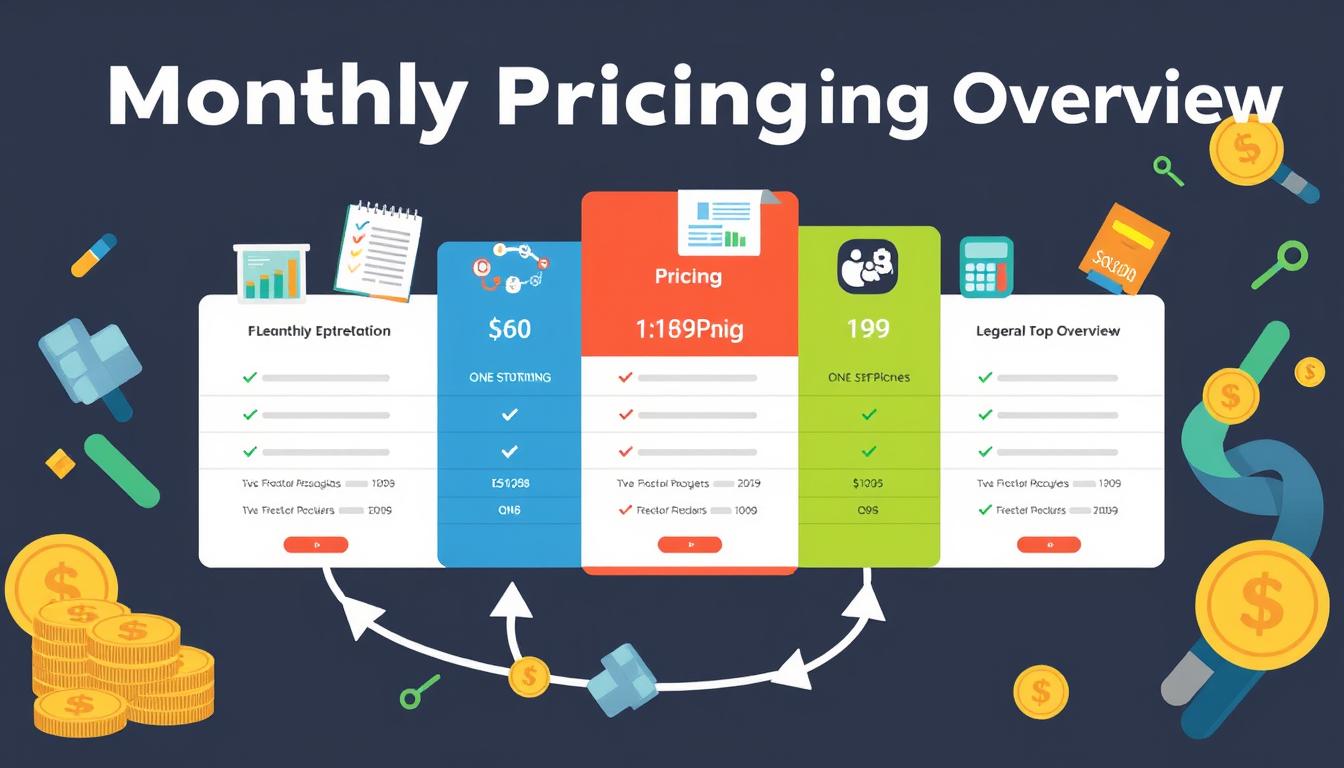
How much is quickbooks per month
Many users want to know the QuickBooks pricing for monthly costs. QuickBooks has various plans for different business needs. This lets users pick the right plan for their financial management.
What affects the QuickBooks monthly cost includes the QuickBooks edition, payment frequency, and extra features. This guide will explain the details of these plans. It will help you understand the costs of using QuickBooks for your business.

How does quickbooks work
QuickBooks is a key accounting software made by Intuit. It helps businesses manage their finances well. It works on a cloud-based platform, so users can access their financial data from anywhere.
This software makes tasks like bookkeeping, invoicing, and financial reporting easier. In this article, we’ll look at QuickBooks’ main features, its users, benefits, and challenges. We aim to help you understand how it can improve your financial management.

How do you record insurance payment in quickbooks
Recording insurance payments in QuickBooks is key for good insurance accounting. It helps business owners manage their money well and keep their books right. This is vital for the health of any business.
In this guide, we’ll show you how to record insurance payments easily. We’ll use QuickBooks guides and tips from accounting experts. This way, you can keep your financial records up to date.
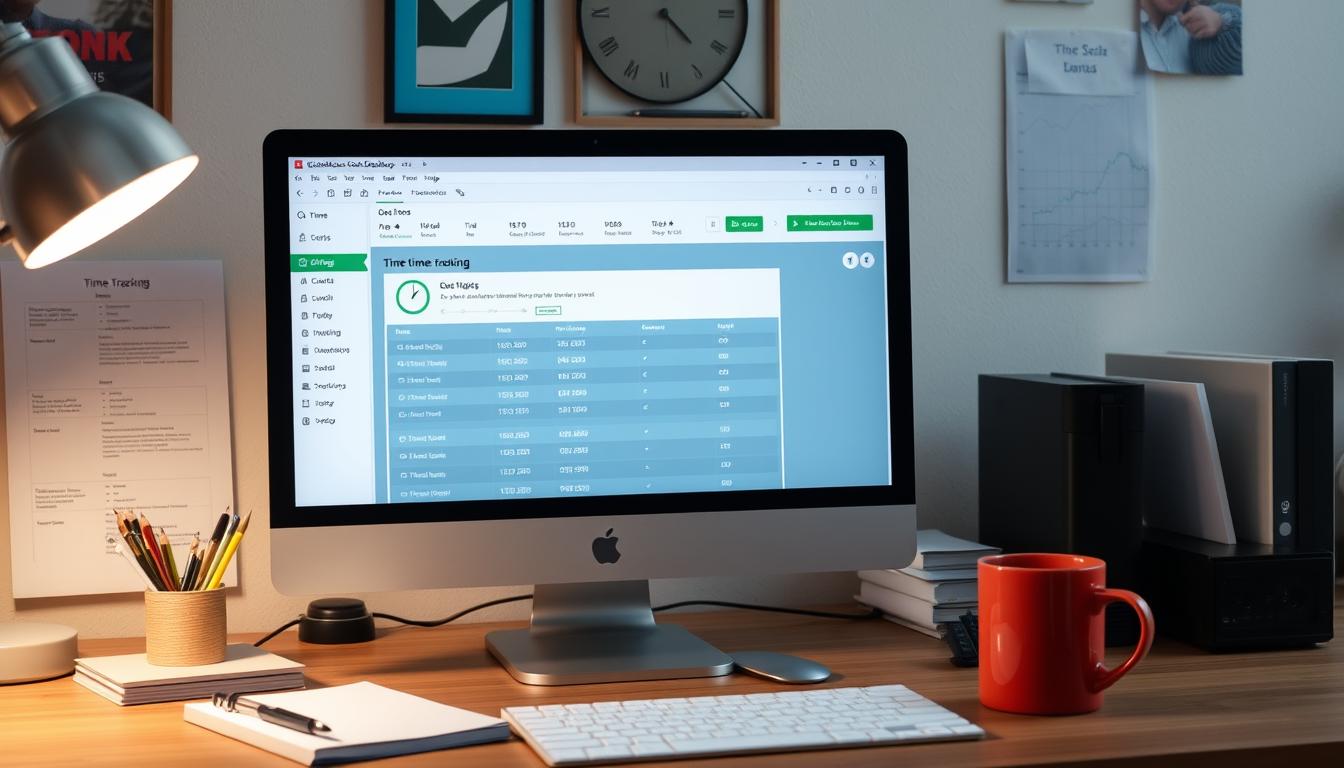
How do you clock in hours in quickbooks desktop
In today’s fast-paced world, tracking time well is key for good payroll management. This article will show you how to clock in hours in QuickBooks Desktop. It’s a top accounting software that makes managing tasks easier. By learning how to track time, businesses can work better and pay employees right.
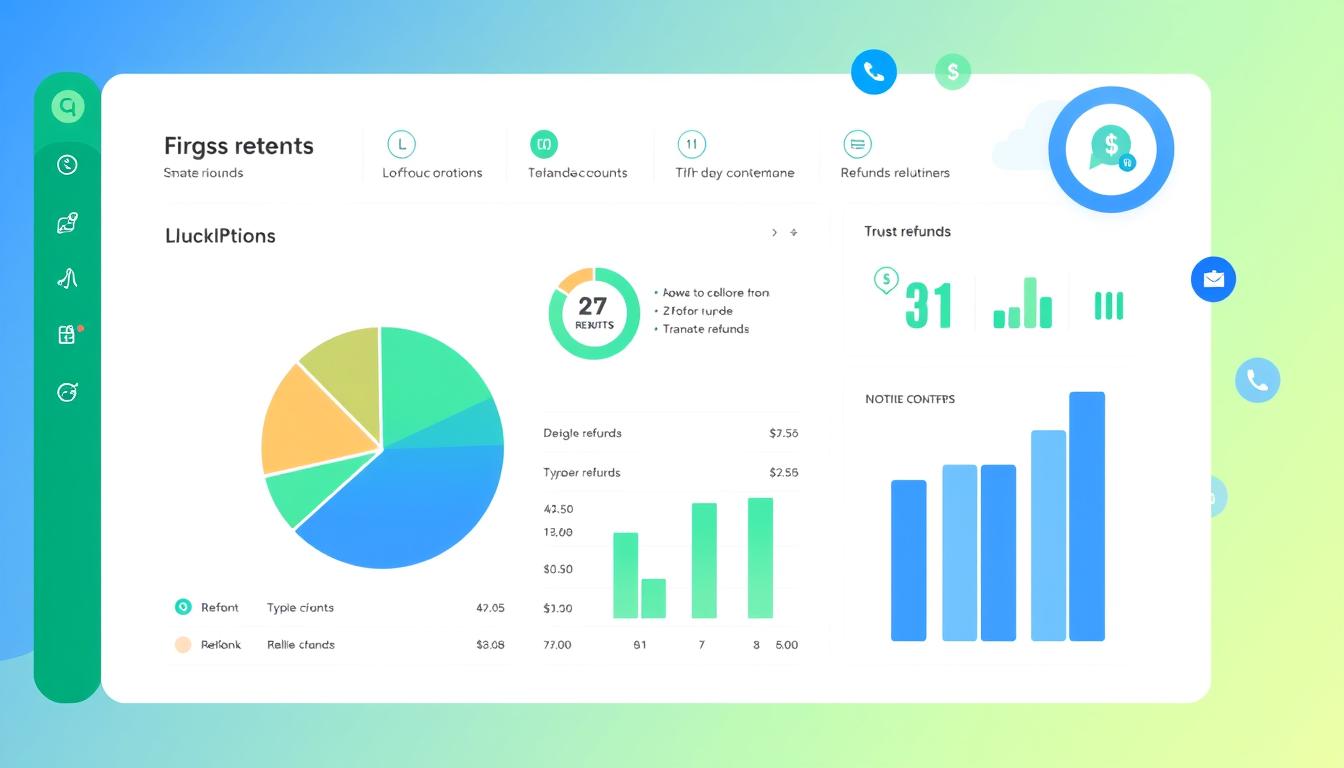
How are refunds categorized in quickbooks online
Knowing how to categorize refunds in QuickBooks Online is key for good financial management. It’s important to record refunds correctly to keep your finances clear. Businesses of all sizes can benefit from knowing how to do this right.
This knowledge helps make your financial records clear and accurate. It’s a basic step that can make a big difference.

Does quoteiq accept quickbooks online payments
Payment solutions are key in today’s business world. Many are looking into how platforms like QuoteIQ can improve their invoicing. A big question is: does QuoteIQ accept QuickBooks Online Payments? This article explores how QuoteIQ and QuickBooks Online Payments work together.
This shows how important it is to have good payment integration. It helps with cash flow and makes operations smoother. We’ll look at the benefits of using QuoteIQ with QuickBooks Online Payments. Plus, we’ll show you how to set it up.
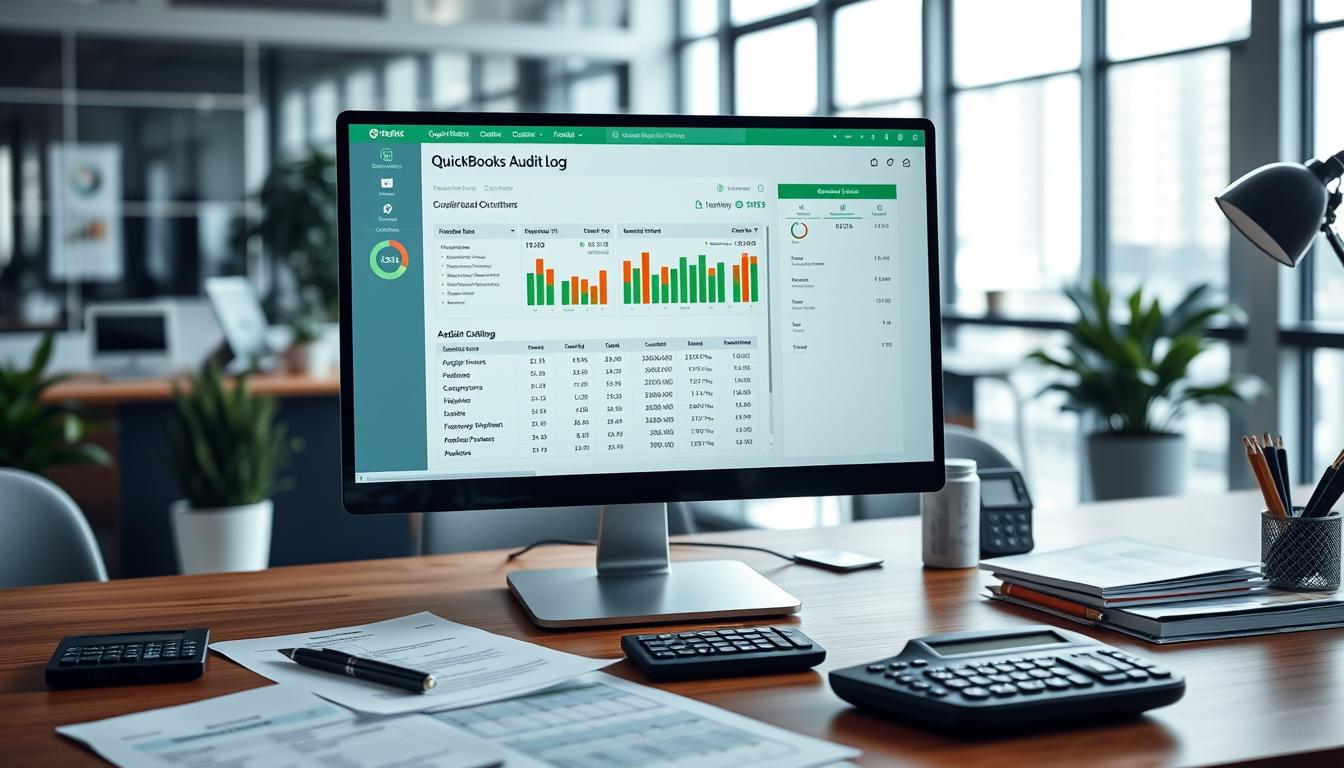
Can you delete history under audit log quickbooks online
It’s important to know if you can delete entries from the audit log in QuickBooks Online. This is key for businesses that focus on financial accuracy and follow the rules. The audit log QuickBooks Online keeps a detailed history of changes to financial data. This ensures that all account activities are recorded clearly.
By tracking these changes, the audit log is crucial for good financial management. We will look into why the audit log matters and what happens if you try to delete its records. We’ll see how these actions impact your QuickBooks history.
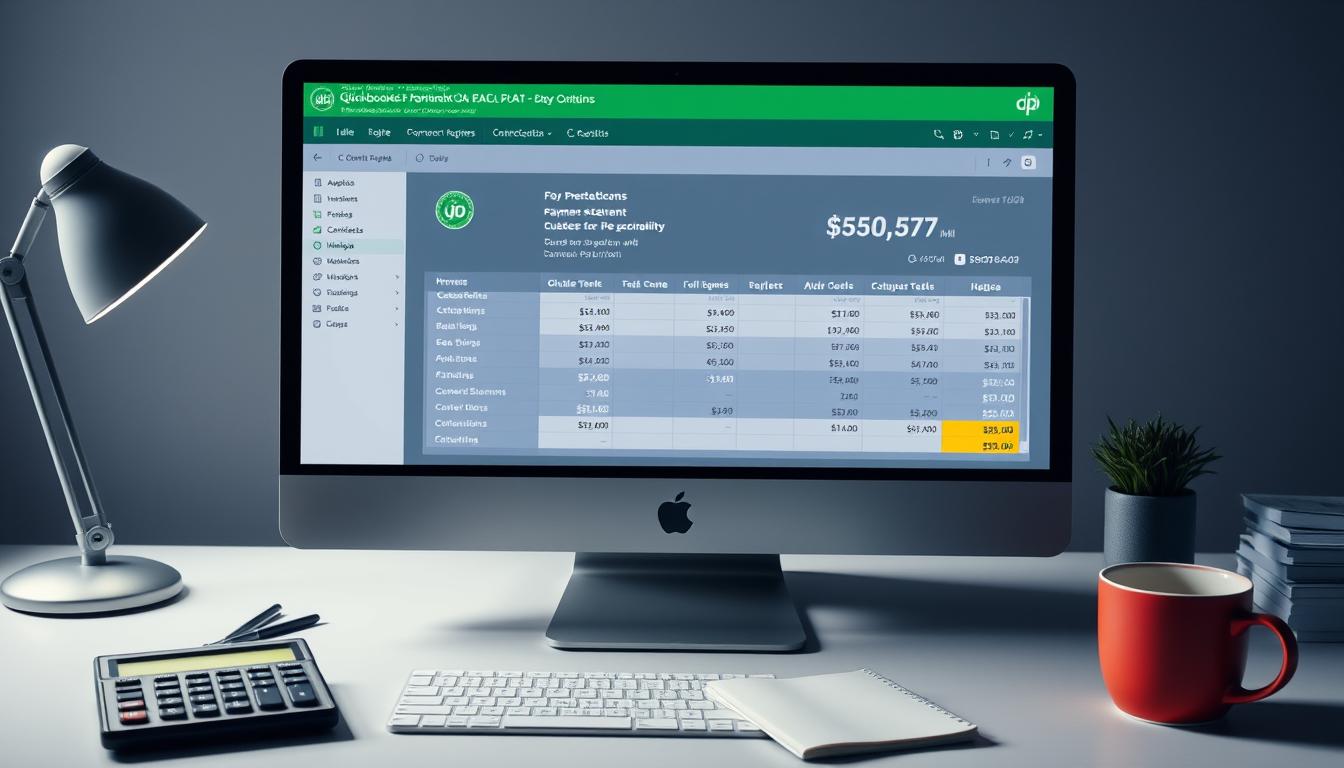
Can quickbooks recievepayment by statements rather that individual invoices
In today’s fast-paced world, businesses need quick and easy ways to handle payments. Many QuickBooks users wonder if they can pay by statements instead of invoices. This method makes accounting simpler for companies.
Using payment statements has big advantages over traditional invoices. QuickBooks helps businesses manage payments better. This article will show you how payment statements work in QuickBooks and how they can help your business.
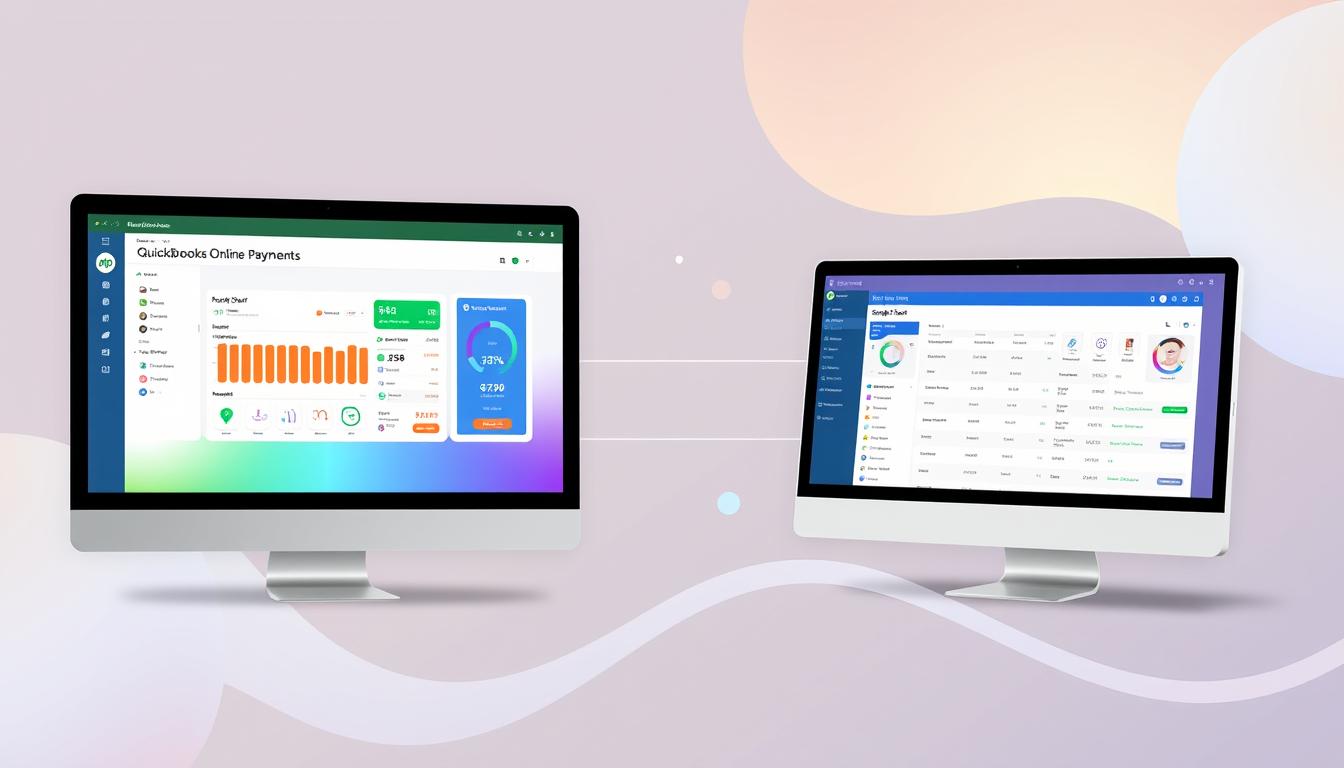
Can quickbooks online payments work with simple start
For small business owners, the question of whether QuickBooks Online Payments and QuickBooks Simple Start can work together is key. This integration is vital for managing finances effectively. It helps users handle transactions smoothly while using a basic accounting tool for solo businesses.
QuickBooks Online Payments lets users take payments online, making cash flow management easier. In this article, we explore how these two tools can boost efficiency for small businesses.